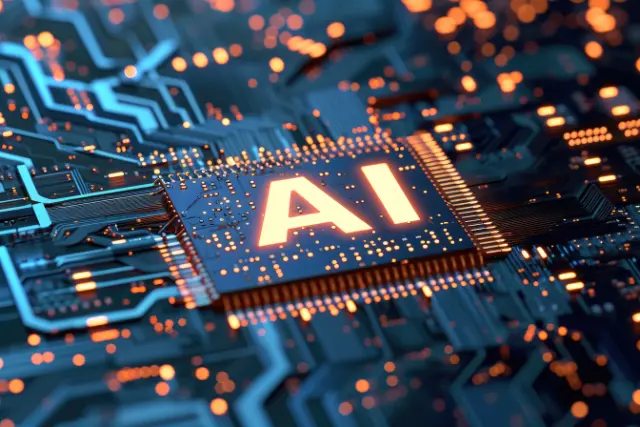Embracing the Future of Retail: Empowering Customer Service with Automation
In the ever-evolving landscape of retail, providing exceptional customer service is paramount to business success. Customer Service Automation has emerged as a transformative force, offering businesses the ability to streamline their operations, enhance efficiency, and deliver personalized experiences at scale.
The challenges faced by traditional customer service models are numerous. Manual processes often lead to errors, delays, and inconsistent responses. With the sheer volume of inquiries received daily, retailers struggle to keep up, resulting in frustrated customers and lost opportunities.
Recognizing these challenges, forward-thinking retailers are turning to the power of Customer Service Automation powered by Python, AI, and cloud-based solutions. These cutting-edge technologies enable businesses to automate repetitive tasks, categorize inquiries intelligently, and provide instant responses to common questions. By automating these processes, retailers can free up their human agents to focus on complex issues that require a personal touch.

Python, AI, and Cloud: The Pillars of Customer Service Automation
Python’s Role in Customer Service Automation
Python is a powerful and versatile programming language that plays a pivotal role in developing customer service automation solutions. Its simplicity, readability, and extensive library support make it ideal for building both unattended and attended bots.
Unattended Bots
Python-based unattended bots can automate repetitive tasks such as processing orders, providing order status updates, and answering FAQs. These bots work tirelessly, 24/7, handling high volumes of inquiries without human intervention. By automating these mundane tasks, businesses can free up their human agents to focus on more complex and value-added interactions.
Attended Bots
Attended bots, also known as virtual assistants, work alongside human agents to enhance their productivity. Built with Python, attended bots can provide real-time assistance, offer product recommendations, and even help agents resolve complex customer issues. The level of customization available in Python allows businesses to tailor their attended bots to meet their specific needs.
Cloud Platforms: Orchestrating Automation
Cloud platforms offer a comprehensive suite of features and capabilities that far surpass traditional RPA/workflow tools. They provide robust automation orchestration, enabling businesses to seamlessly integrate multiple bots and systems into a cohesive workflow. Cloud platforms also offer advanced features such as auto-scaling, high availability, and real-time monitoring, ensuring that customer service automation runs smoothly and efficiently.
AI’s Contribution to Accuracy and Intelligence
AI plays a crucial role in enhancing the accuracy and intelligence of customer service automation solutions. Techniques like image recognition can automate tasks such as product identification and defect detection. Natural language processing (NLP) enables bots to understand and respond to customer inquiries in a natural and conversational manner. Generative AI can even be used to create personalized responses and recommendations, tailoring the customer experience to each individual.
By leveraging the power of Python, AI, and cloud platforms, businesses can unlock the full potential of Customer Service Automation, transforming their customer interactions into seamless, efficient, and personalized experiences.

Building the Customer Service Automation Architecture with Python and Cloud
Step 1: Process Analysis
The first step in building a robust Customer Service Automation solution is to thoroughly analyze the processes involved. This includes identifying the different types of customer inquiries, the steps required to resolve them, and the data that needs to be accessed.
Step 2: Automation Development
Using Python and a cloud platform, developers can build automated workflows that mimic the identified processes. These workflows can handle tasks such as:
- Receiving and categorizing customer inquiries
- Providing automated responses to FAQs
- Escalating complex issues to human agents
- Updating customer records
Step 3: Data Security and Compliance
Data security and compliance are paramount in the retail industry. Python and cloud platforms provide robust security features to protect customer data, ensuring that it remains confidential and compliant with industry regulations.
Advantages of Python over No-Code RPA/Workflow Tools
While no-code RPA/workflow tools offer a low-code entry point to automation, they often come with limitations:
- Limited Customization: Pre-built tools may not be able to accommodate the unique requirements of retail businesses.
- Scalability Issues: No-code tools may struggle to handle high volumes of inquiries, leading to performance bottlenecks.
- Data Security Concerns: Some no-code tools may not provide adequate data security measures, putting customer data at risk.
Python, on the other hand, offers:
- Unmatched Flexibility: Python’s versatility allows for highly customized automation solutions tailored to specific business needs.
- Scalability and Performance: Python-based automations can handle high workloads efficiently, ensuring seamless customer service.
- Robust Security: Python’s integration with cloud platforms provides enterprise-grade data security and compliance.
Algorythum’s Approach: Empowering Clients with Python Expertise
Algorythum takes a different approach to Customer Service Automation, recognizing the limitations of off-the-shelf automation platforms. Our team of Python experts builds custom solutions that are:
- Tailored to Specific Needs: We analyze each client’s unique requirements to develop tailored automation solutions that meet their specific objectives.
- Highly Scalable and Reliable: Our Python-based automations are designed to handle high volumes of inquiries, ensuring consistent and reliable customer service.
- Secure and Compliant: We prioritize data security and compliance, leveraging Python’s robust features and cloud platform integrations to protect customer data.
By partnering with Algorythum, retail businesses can unlock the full potential of Customer Service Automation, empowering them to deliver exceptional customer experiences, drive operational efficiency, and gain a competitive edge.

The Future of Customer Service Automation
The future of Customer Service Automation holds immense promise for the retail industry. As technology continues to evolve, new possibilities emerge to enhance the proposed solution and revolutionize customer service experiences.
One exciting area of exploration is the integration of artificial intelligence (AI). AI-powered bots can handle increasingly complex inquiries, providing personalized and empathetic responses. They can also learn from past interactions, continuously improving their ability to resolve customer issues.
Another promising technology is augmented reality (AR). AR-enabled applications can provide customers with immersive and interactive experiences, allowing them to virtually try on products or troubleshoot technical issues. This technology has the potential to transform the way customers engage with brands.
By subscribing to our newsletter, you’ll stay up-to-date on the latest trends and advancements in Customer Service Automation. Our team of experts is also available to provide a free feasibility and cost estimate for your custom requirements.
Contact us today to explore how Customer Service Automation can empower your retail business to deliver exceptional customer experiences, drive operational efficiency, and gain a competitive edge.

Algorythum – Your Partner in Automations and Beyond
At Algorythum, we specialize in crafting custom RPA solutions with Python, specifically tailored to your industry. We break free from the limitations of off-the-shelf tools, offering:
- A team of Automation & DevSecOps Experts: Deeply experienced in building scalable and efficient automation solutions for various businesses in all industries.
- Reduced Automation Maintenance Costs: Our code is clear, maintainable, and minimizes future upkeep expenses (up to 90% reduction compared to platforms).
- Future-Proof Solutions: You own the code, ensuring flexibility and adaptability as your processes and regulations evolve.









